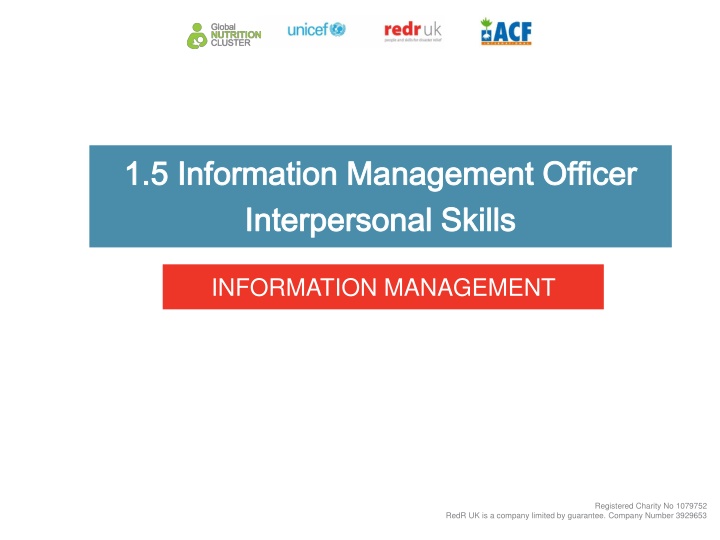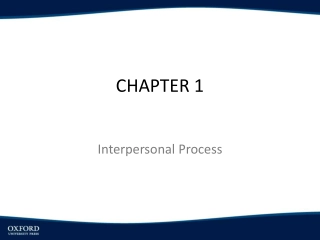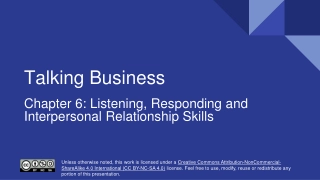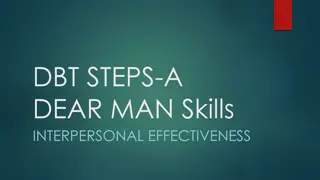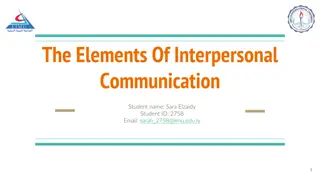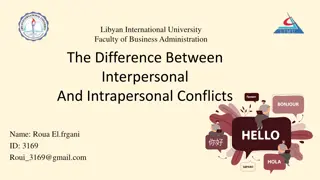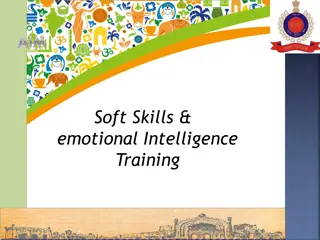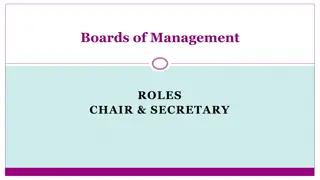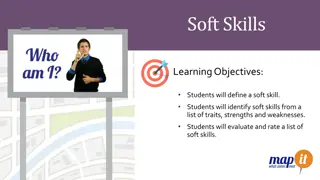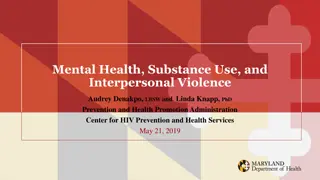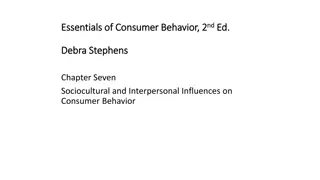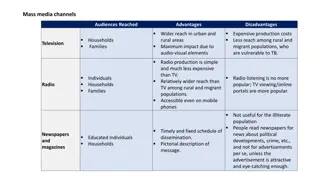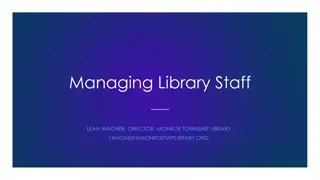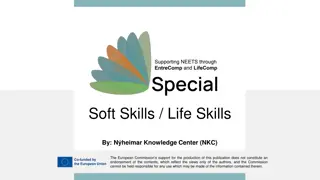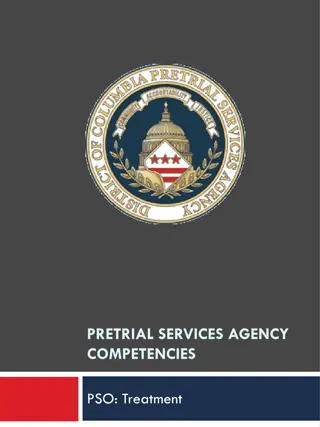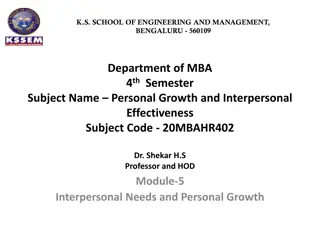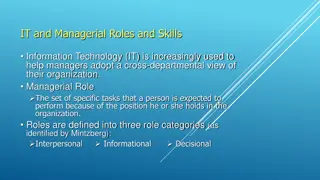Improving Interpersonal Skills for Effective Information Management
Enhancing interpersonal skills is crucial for Information Management Officers (IMOs) to work effectively with diverse stakeholders. This includes understanding various perspectives, tailoring communication, listening actively, and leading stakeholders. Challenges like inter-personal issues can impede progress, but with effective meeting management, such obstacles can be overcome. Tips for better meetings include having a clear purpose, appropriate attendees, active participation, and clear outcomes.
Download Presentation

Please find below an Image/Link to download the presentation.
The content on the website is provided AS IS for your information and personal use only. It may not be sold, licensed, or shared on other websites without obtaining consent from the author.If you encounter any issues during the download, it is possible that the publisher has removed the file from their server.
You are allowed to download the files provided on this website for personal or commercial use, subject to the condition that they are used lawfully. All files are the property of their respective owners.
The content on the website is provided AS IS for your information and personal use only. It may not be sold, licensed, or shared on other websites without obtaining consent from the author.
E N D
Presentation Transcript
1.5 Information Management Officer 1.5 Information Management Officer Interpersonal Skills Interpersonal Skills INFORMATION MANAGEMENT Registered Charity No 1079752 RedR UK is a company limited by guarantee. Company Number 3929653
Inter-personal Competencies Working effectively with people from all backgrounds (e.g. women, men, boys, girls, LGBT, people living with disabilities etc.) Understanding and considering diverse opinions Identifying partners needs and matching them with appropriate solutions Tailoring language, tone, style and format to match audiences Actively listening to perspectives of partners and stakeholders Interpreting messages and responding appropriately Leading and influencing partners and stakeholders
The Challenges of Working with IM Stakeholders What are some examples of inter- personal challenges faced by IMOs?
Worst meeting Think about the worst meeting you have been to. Why was it so bad? Make a list of the worst things about it
What makes a bad meeting? No clear purpose or agenda or poorly communicated Wrong people in attendance Too many or too few people Poor preparation by facilitator or participants Space is inappropriate (size, location, equipment) People overlooked/not given space to speak (no translation) Some people dominate the meeting Not a safe space for people to share information Not enough participation Doesn t run to time/too short for agenda No clear outcomes/next steps
Effective Meeting Management It s a process
Go back to your worst meeting Think back to the meeting you described at the start Using the tips we have just discussed, what could have been done to make that meeting better? Make a list of the tips you would give the organiser.
Three Phases Of A Negotiation: 1. Preparation (Analysis & Strategy) 2. Face-to face 3. Follow-up
Entering the Negotiation I don t use the cluster reporting format. POSITION My agency work takes priority and they have people who can re-format the data INTEREST I need to avoid difficulties with my supervisor by following our agency systems, and need to retain my team s autonomy NEED
Focus on interests and needs, not POSITION YOU ME POSITION I WIN, YOU LOSE YOU WIN, I LOSE INTEREST Zone Of Possible Agreement NEED WIN / WIN
Think carefully what you will do if you cannot reach agreement Know Your BATNA: Best Alternative To a Negotiated Agreement The reason you negotiate is to produce something better than the results you can obtain without negotiating. - Roger Fisher
Three Phases Of A Negotiation: 1. Preparation (Analysis & Strategy) 2. Face-to face 3. Follow-up
Communication elements Assertive Commun- ication Effective Listening Body Language
Active Listening Listen for feelings as well as facts Repeat, paraphrase, reframe back to the speaker Avoid: interrupting Are you really listening or just assuming you already know what is going to be said waiting for your next turn to speak? mentally rehearsing what to say next
Communication elements Assertive Commun- ication Effective Listening Body Language
Angling of upper body conveys interest and empathy
What do observe about the body language in this photo? She s not buying it?
Communication elements Assertive Commun- ication Effective Listening Body Language
Conveying interests in an assertive communication style You Can sound accusatory Remember I statements! Why Can sound challenging How ; what are your concerns, etc. But The verbal eraser : invalidates everything that before it! Instead of yes, but, try yes, and... Next time we can (reframe as a future proposition) Should have or ought to have Sounds judgmental Be prepared to repeat yourself As I ve already said Sounds impatient
Separate People From Problems Be hard on the issue, soft on the person and adopt a problem-solving approach
Respect Diversity Remember, there are diverse ways of communicating across cultures!!!
Three Phases Of a Negotiation: 1. Preparation (Analysis & Strategy) 2. Face-to face 3. Follow-up
Negotiation Exercise Take a few minutes to read the sheet you have. It tells you about YOU in the negotiation. Your partner has the alternate position in this negotiation problem. Work as a pair to identify the issues from both sides. Think about more than just your position. Come up with possible solutions to the problem (think win-win)
Self-reflection against competencies Identifying partners needs and matching them with appropriate solutions Understanding and considering diverse opinions Interpreting messages and responding appropriately Working effectively with people from all backgrounds Tailoring language, tone, style and format to match audiences Actively listening to perspectives of stakeholders Leading and influencing partners and stakeholders
